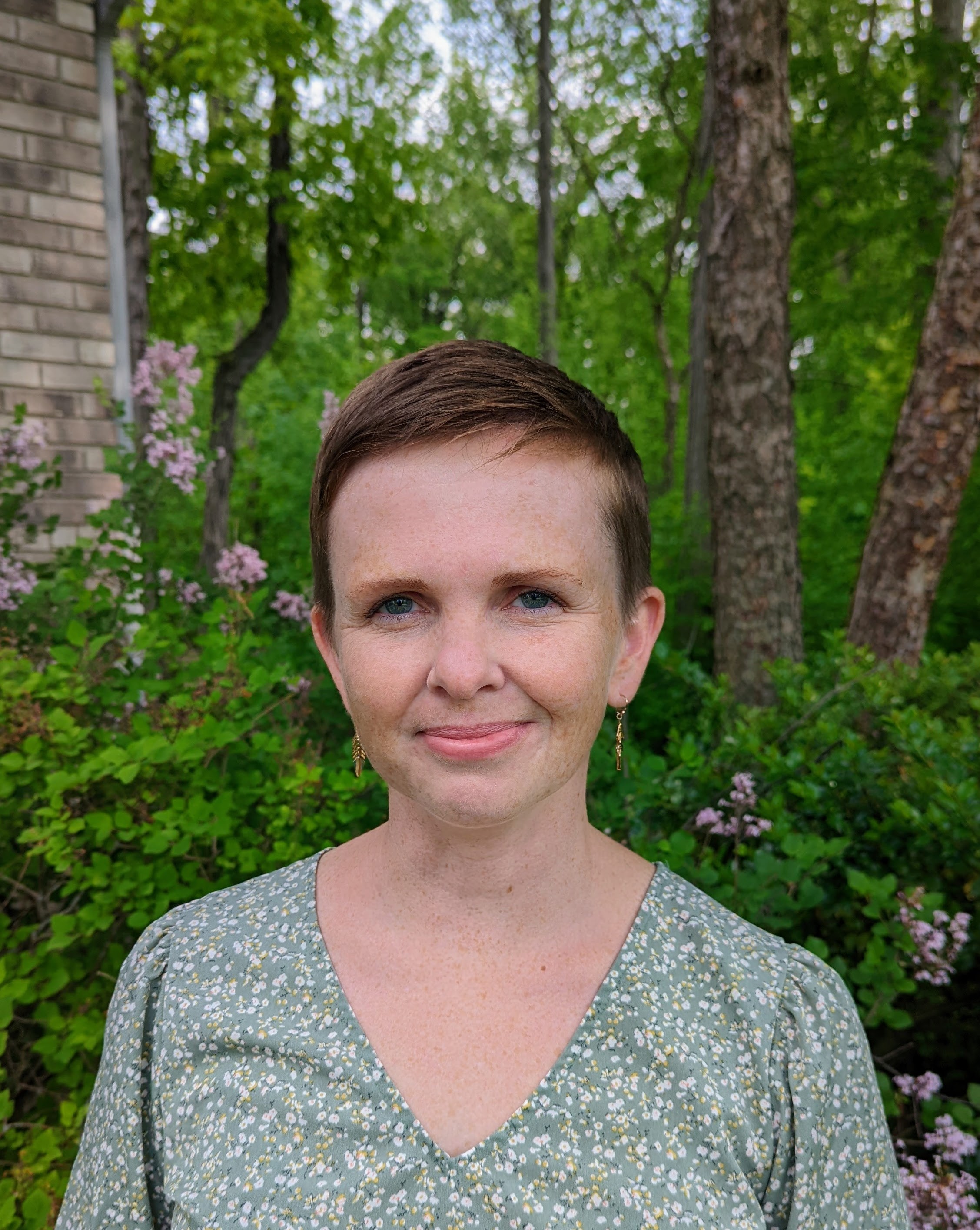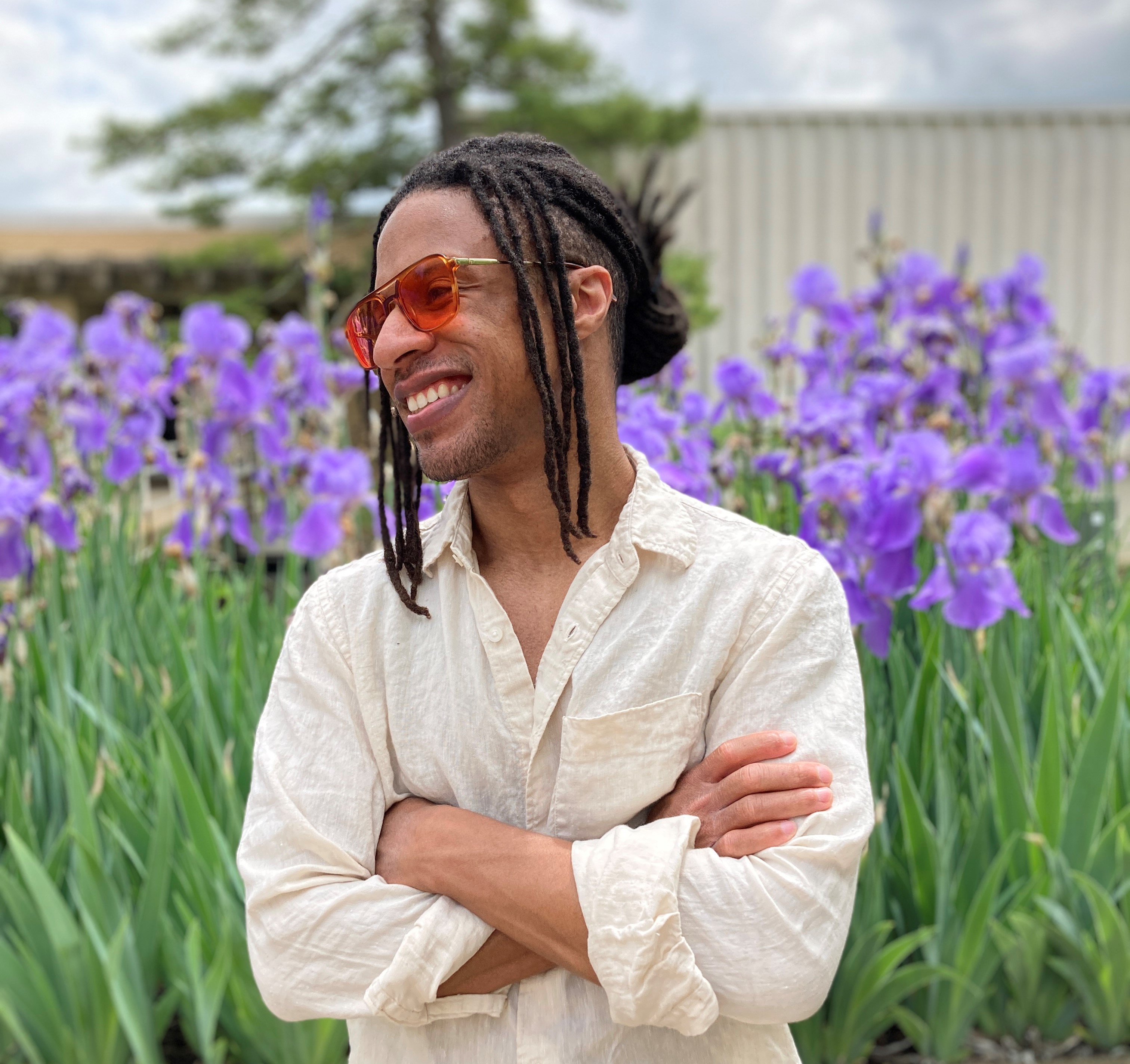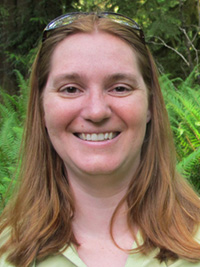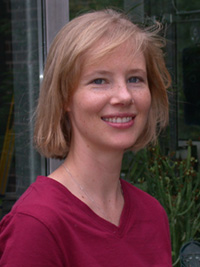BSA Emerging Leader Award
|
The “Emerging Leader Award” of the Botanical Society of America is given annually in recognition of creative and influential scholarship as well as impact in any area of botany reflecting the breadth of BSA. Awardees should have outstanding accomplishments and also have demonstrated exceptional promise for future accomplishments in basic research, education, public policy, exceptional service to the professional botanical community, or a combination of these categories. The BSA Emerging Leader Award Committee will evaluate the applications. Awardee(s) will be recognized at the annual meeting, have the opportunity to present a special lecture at the next annual meeting, and receive an award check of $3,000 designed to cover their expenses to attend the next annual conference and honor their excellent achievements. Each awardee will also receive a five-year membership in the BSA, an invitation to submit a special paper to the American Journal of Botany, and free on-line publication for two years in AJB. In extraordinary circumstances, BSA may provide 2 awards of $3,000 each in a given year.
Deadline March 15, 2025 (Noon Central time)
Eligibility: 1) The candidate must be within ten years of earning a Ph.D. (or equivalent; not including time on parental or other leave) and 2) must be a member of the Botanical Society of America at the time of the award.
Nomination/Application Process: Candidates may apply directly, but more senior members also are encouraged to nominate outstanding young scientists who may be unaware of the existence and prestige of this prize.
Each application must be supported by the following materials detailing the candidate's career to date to be considered for this award by the BSA Emerging Leader Award Committee. Please send in pdf format to bsa-manager@botany.org:
(1) Nominee/Applicant: First and Last Name, Email Address, Institution, Phone Number
(2) Nominator: First and Last Name, Email Address, Institution, Phone Number
(3) Applicant’s curriculum vita,
(4) Applicant’s summary statement including accomplishments in research and activities to promote education, outreach, and/or service as well as a vision for future activities in these areas. This document should be no more than three pages.
(5) Three recent publications (pdf format),
(6) Names and contact information (email, address, institution, phone) of letter writers
(7) Under separate cover, two letters of reference (including the nominator’s where applicable), should be sent directly to bsa-manager@botany.org. No application will be considered complete without these letters.
(8) Professional Conduct Disclosure Form from the nominator and any other letter writers
All nominated awardees must adhere to the BSA Guidelines for Professional Ethics and the Ethical Guidelines for Nominated Awards.
|

|
Dr. Aaron S. David – 2024.
Dr. Aaron David received his PhD from the University of Minnesota in 2016. From his early days as a postdoctoral researcher to his current role as the Director of the Plant Ecology Lab at Archbold Biological Station, Aaron’s pioneering research stands as a testament to his innovative thinking and commitment to addressing pressing ecological challenges.
Dr. David’s expertise spans various disciplines, from sequencing and plant biology to modeling and computer programming, laying a solid foundation for his subsequent contributions that bridge the gap between plant population demography and microbiology to understand the intricate dynamics of threatened and endangered plant species. His work with endangered plant species like Hypericum cumulicola has not only deepened our understanding of plant-microbial interactions but also shed light on the intricate mechanisms driving population dynamics.
His scientific integrity, collaborative ethos, and proactive approach to conservation underscore his potential to shape the future of plant biology and environmental stewardship. As he continues to push the boundaries of scientific inquiry and inspire the next generation of scientists, BSA is proud to honor him with the Emerging Leader Award.
|
 |
Dr. Joyce Gloria Onyenedum – 2023
Dr. Joyce Onyenedum is currently Assistant Professor of Plant Evolution in the Liberty Hyde Bailey Hortorium at Cornell University. She earned a bachelor’s degree in plant sciences from Cornell and a doctorate in integrative biology from the University of California, Berkeley. The fundamental question driving her research is understanding how plants climb. She studies patterns through classical plant anatomy, morphology, molecular systematics, and statistical phylogenetic comparative methods; she complements these findings with an understanding of the developmental, cell, and molecular processes that shape the climbing habit in disparate lineages. This integrative approach allows her to link acroevolutionary patterns to fine-scale mechanistic processes, thus uncovering the evolution of development (evo-devo) of climbing plants.
Dr. Onyenedum has been involved with the BSA ever since she discovered her love of plants and changed her area of interest from chemistry to plants during her undergraduate studies. She is a PLANTS Program Awardee (2013) and mentor (2017), received the Katherine Esau Award for Best Talk in Developmental and Structural Biology at the Botany Conference in 2019, and was invited to write a Review Article articulating her ideas about secondary growth evo-devo in the American Journal of Botany. She has served on numerous BSA committees and presented broadly on her work through teaching, publications, seminars, and conferences. Her educational mission is to increase public and professional literacy of fundamental concepts in botany throughout the United States, and to re-energize the critical-yet-neglected discipline of Plant Anatomy. Most recently, she has teamed up with BSA and PlantingScience to promote her forthcoming animated plant anatomy video series, “Build a Plant,” which aims to bridge the gap between classically trained botanists and model-species molecular plant biologists.
According to one of her dissertation advisors, “Joyce is not an evodevophysioanatomicophylo biologist working on plants, she absolutely is a BOTANIST—a love of plants is what brought her to science and what keeps her going. And it is what allows her to be such an effective advocate for the botanical sciences.”
|
 |
Dr. Karolina Heyduk - 2022
Dr. Karolina Heyduk is currently Assistant Professor in the School of Life Sciences at the University of Hawai'i at Mānoa and the Director of the Joseph F. Rock Herbarium. Her research integrates plant ecophysiology, evolutionary biology, and genomics to understand the ways plants adapt to harsh environments, with a particular focus on photosynthetic pathway evolution, especially Crassulacean acid metabolism (CAM).
Karolina’s research requires a high level of computational skills, a thorough understanding of the biology and metabolism involved, and the ability to conduct experiments that are meaningful in terms of the ecology and physiology of the species under investigation. Such an integrated approach is rare in plant science research. She has been influential in her early adoption of target sequence capture, a method that allows researchers to “efficiently plumb the depths of the nuclear genome for a range of comparative purposes.” Dr. Heyduk developed protocols and an accompanying probe set for target sequence capture in palms, which are now universally known as “Heyduk baits.” She has received numerous grants (including for funding that will improve the herbarium’s infrastructure and utility), has an impressive list of publications, serves on the editorial boards of Applications in Plant Sciences and Annals of Botany, and has been invited to give talks at institutions around the world.
Dr. Heyduk is recognized as an exceptional community builder, uplifting those whose voices have been marginalized, excluded, or entirely absent from the conversation through her work in the classroom, collections management, research, and service. She recruits students from diverse backgrounds, particularly Pacific Islanders and Native Hawaiians, to participate in research and herbarium activities. Through her interactions on Twitter, she is the “rare scientist who is simultaneously rigorous in their scholarly sharing and their advocacy for inclusivity and awareness.” She is active on BSA’s Early Career Development Committee, tasked with providing opportunities for early career members; has been a longtime mentor in the PLANTS program; and is co-organizing a symposium and colloquium at Botany 2022 on colonialism in botany and Indigenous perspectives. Although Karolina is early in her career, she is already making a huge difference as a leader in the community.
|
 |
Dr. Brian Atkinson - 2021
Dr. Brian Atkinson is currently Assistant Professor in the Department of Ecology and Evolutionary Biology at the University of Kansas and curator of the paleobotany collection at the KU Biodiversity Institute. Brian completed his doctoral dissertation at Oregon State University in 2017, after earning among other awards, a NSF Doctoral Fellowship and the BSA Paleobotanical Section Isabel Cookson Award. Dr. Atkinson is one of the leading scientists of his generation in paleobotany and plant evolution. He is making impressive contributions as a field-based scientist who combines morphological and molecular data, extant and extinct plants, as well as biological and geological data. In addition, Dr. Atkinson has become an accomplished teacher, inspiring mentor, and an exceptional role model.
|
 |
Dr. Christopher Muir - 2020
Dr. Christopher Muir is currently an Assistant Professor in the Department of Botany at the University of Hawaii. Dr. Muir is an exceptionally talented quantitative evolutionary biologist, a passionate and committed botanist, and a true emerging leader across the fields of plant trait ecophysiology and evolution, including as a developer of community resources and organizations to support the synthesis of these fields.
Although many scientists are deeply versed in their own sub-discipline, few think so broadly and synthetically across major fields of research. To do so, Chris used a remarkable range of approaches, including mathematical and simulation modeling, computational phylogenetics, genetic mapping, ecological manipulations, and functional physiological analyses. His novel, creative, and cutting edge body of work is bound to have a strong, lasting impact on research in the field. Its reach is also demonstrated by the 22 publications he has already produced, as well as his success in attracting research funding support, as well as playing an active role in several large collaborative efforts to understand broad patterns of plant diversification.
Dr. Muir has independently spearheaded the development and dissemination of open source software for analyzing plant trait physiology and evolution, including tealeaves, photosynthesis, leafoptimizer, and BayCi. In parallel, as the inaugural Secretary for the new Division of Botany within the Society for Integrative and Comparative Biology (SICB), Chris has shown a deep and ongoing commitment to expanding opportunities for the community of plant scientists that are working at the intersection of organismal physiology and evolution.
|
|
|
 |
Dr. Emily Sessa - 2019
Dr. Emiy Sessa serves as Assistant Professor at the University of Florida where she has developed a well-funded and strong research program. Dr. Sessa’s research is focused on understanding the evolutionary processes that shape plant diversity with a major focus on fern systematics and phylogenetics. To this end, she has published more than 40 peer-reviewed publications on these topics with significant contributions to our understanding of Dryopteris phylogenetics and systematics as well as plant biogeography. Emily also studies plant physiology and is among the few researchers to genuinely combine physiology, genomics, and phylogenetics in her analyses of drought tolerance in fern gametophytes and sporophytes. At the heart of her research is the question, “what ecological and evolutionary processes have generated, and help to maintain, fern diversity on Earth?”
Dr. Sessa has been described as one of the brightest botanical stars of her generation by her colleagues and is already an active leader in the botanical research community. She has served as an editor or associate editor for the American Fern Journal and the American Journal of Botany, as Communications Coordinator for the American Society of Plant Taxonomists and was recently elected as the next Director at Large for Publications on the BSA Board. Over the past 24 months, Emily has delivered 13 invited seminars and lectures. She has also mentored more than 12 undergraduate students, four graduate students, and two postdoctoral researchers.
Her latest teaching endeavor is a study abroad course on the Biodiversity of Southern Africa. Dr. Sessa will be leading a four-week field course in South Africa, Botswana, and Namibia that immerses students in field research and hands-on learning in one of the most botanically and biologically exciting areas on Earth.
|
|
|
 |
Dr. Madelaine Bartlett - 2018
Dr. Madelaine Bartlett is a strongly dedicated scientist, driven by her multi-disciplinary research on plant evolution and development with particularly strengths in molecular and genomic evolution, plant developmental genetics, and comparative and experimental plant evolutionary biology. Her research uniquely combines these various focal areas of expertise, making her one of the top plant evolutionary and developmental geneticists of her generation.
She is fearless in developing cutting-edge research designed to understand fundamental processes in plant development and genetic evolution that ultimately play a key role in plant adaptation and diversification. Though her research, teaching & mentoring, and outreach Madelaine has positioned herself to have a major impact on the future of scientific research and education in botany, plant evolution and developmental biology. Her scholarship, creativity, energy and drive make her the ideal embodiment of a BSA Emerging Leader.
|
|
|
 |
Dr. Benjamin Blackman - 2017
Dr. Benjamin Blackman is an Assistant Professor in the Department of Plant and Microbial Biology and the University of California, Berkeley. Ben earned his B.S. in Biological Sciences at Stanford University and then continued on there as a technician in the lab of Dr. David Kingsley. Ben received his Ph.D. in 2009 from Indiana University, Bloomington, where he worked with with Drs. Loren Rieseberg and Scott Michaels, and he completed an NSF Postdoctoral Fellowship in Biology at Duke University and University of California, Berkeley with Drs. John Willis and Daniel Rokhsar, respectively. Ben served as a faculty member in the Department of Biology at the University of Virginia for seven semesters before starting his current position at UC Berkeley in January 2016. Over this period, Ben has been a highly productive researcher, authoring over 25 publications, and he also has an impressive record of fellowship and grant support from the National Science foundation.
Ben’s research takes a highly integrative approach to understanding how plant development responds to seasonal and diurnal environmental fluctuations and how these plastic responses evolve during adaptation or domestication. His work applies genomic, functional, and comparative approaches in two classic and diverse systems, sunflowers and monkeyflowers, In doing so, Ben has made many novel insights spanning from the nucleotide level to population ecology in the evolution of photoperiodic flowering as populations adapt to local habitats, the contribution of gene duplication to evolutionary innovation during domestication, and the biology of solar tracking.
Ben’s commitment to teaching, outreach and professional service is also impressive. Since defending his PhD, Ben has mentored over 70 undergraduates and high school students. Many of these diverse students have continued on in STEM fields, and Ben was recognized as an outstanding faculty mentor by the VA-NC Louis Stokes Alliance for Minority Participation in STEM in 2015. Ben has also organized several regional meetings and symposia, and he has served on the BSA Public Policy Committee since 2013. Among his achievements in outreach, Ben mentored K-12 Planting Science teams for five years, helped develop and implement a discovery-based genomics curriculum for high school summer interns at the National Museum of Natural History, and is now a lead organizer of Walking with Wildflowers, a new citizen science initiative for monitoring plant phenology along the Pacific Crest Trail.
|
|
|
 |
Dr. Michael Barker - 2016
Dr. Michael Barker is an Assistant Professor in the Department of Ecology and Evolutionary Biology at the University of Arizona. Mike received his undergraduate degree at Denison University, earned a Master’s degree at Miami University, and then obtained a PhD in 2009 at Indiana University with Drs. Loren Rieseberg and Gerald Gastony. After his NSERC-BRITE Postdoctoral Fellowship at University of British Columbia with Dr. Sally Otto, he took his current position in 2011. Over that time, Mike has proven to be a prolific researcher, with more than 50 peer-reviewed publications.
As an emerging leader, Mike enjoys a national and international reputation for being an expert at using bioinformatics and computational biology to confront enduring evolutionary questions in botany. Mike has successfully focused on developing algorithms for studying ancient and recent polyploidy (whole genome duplications). Taxonomically, he has worked primarily on ferns and members of the sunflower family; however, his novel methods in computational biology have led him to work on many plant groups as now on insects and other lineages of life. His expertise also spans time from macroevolution to microevolution – from the diversification of major lineages to recent hybridization and plant domestication.
Mike has an impressive record of leadership not only in research, but he is also dedicated to teaching, outreach and service. Whether coordinating computational workshops or directing campus-wide bioinformatics efforts, Mike has demonstrated a willingness to step up and assume leadership roles in professional societies and at the University of Arizona. He has organized several symposia and colloquia, including a BSA symposium and special issue of the American Journal of Botany on the theme of polyploidy and genome evolution. Given his record of accomplishment and contributions to Botany, Dr. Michael Barker is an exemplary recipient of the BSA Emerging Leader Award.
|
|
|
 |
Dr. Selena Smith - 2015
Dr. Selena Smith has only recently become an Assistant Professor of Earth & Environmental Sciences and Program in the Environment (and Museum of Paleontology) at the University of Michigan. Nevertheless, she already has established an exemplary record of innovative scientific research, professional leadership, and student mentorship. Selena initiated her program of paleobotanical research as a high school honor student, conducting, completing, and publishing her first scientific paper before entering the University of Alberta, where she completed an additional nine papers while completing her B.S. and Ph.D. degrees in 2002 and 2007, respectively. In 2005 she received the first NSERC André Hamer Doctoral Postgraduate prize, awarded to the single most outstanding doctoral student in Canada. Selena already has published more than 30 refereed papers (since the year 2,000). The superior quality of Selena’s studies has been appreciated since her first presentations, earning her numerous awards including the Isabel Cookson Award (for best research student presentation in paleobotany at the annual Botanical Society of America meetings), and prestigious competitive pre-doctoral and post-doctoral fellowships in Canada and the United Kingdom. She has achieved continuous National Science Foundation funding through multiple awards from 2010 through at least 2018. Selena’s studies go well beyond the narrow systematic breadth, stratigraphic ranges, or preservational modes that characterize the work of less creative scientists, and she has been at the forefront of developing and employing new methods and technologies such as X-ray tomography, which uses synchrotron technology to develop non-invasive three-dimensional images of fossil plants that may still be imbedded in rock matrix. Her work also spans a wide range of foci, including structure and development, reproductive biology, paleoecology and paleophytogeography, and systematics and evolution of ferns, gymnosperms, flowering plants, and fungi.
Selena routinely serves on university taskforces and professional society committees, reviews manuscripts, organizes conferences and symposia, performs editorial duties for scholarly publications, and has established a strong record of student mentoring. She currently is supervising one postdoctoral researcher, several graduate student researchers, several undergraduate student researchers, and a high school student. Including past student supervisions, Selena already has helped shape the development of nearly 30 young scientists. Most notable among her numerous outreach activities are initiatives that advocate for the promotion of women in science. Although Selena Smith is but a junior faculty member by age and by years of activity, she already has achieved the stature of a highly successful senior scholar with respect to scientific achievement, broadening of her discipline, contributions to professional societies, and the establishment of new generations of active scientists.
|
|
|
 |
Dr. Stacy Smith - 2014
Dr. Stacey Smith has received the very first BSA Emerging Leader Award.
Dr. Smith is an accomplished researcher with a true commitment to education and outreach and a willingness to step into leadership roles. She is currently an assistant professor at the University of Colorado, Boulder. Smith did her undergraduate work at Virginia Tech, earned a Master’s on a Marshall Fellowship at the Universities of Reading and Birmingham, and then obtained a PhD in Botany from the University of Wisconsin in 2008. After doing a post-doc at Duke University, and spending 3 years on the faculty at the University of Nebraska, she took her current position in 2013. Over that time Stacey has proven herself to be a prolific researcher, with more than 25 publications, including co-authorship of the book, Tree thinking: An Introduction to Phylogenetic Biology.
Stacey is best known for her work on Iochrominae (Solanaceae), a clade that she has turned into a spectacular model system for bridging ecological studies of pollination biology with genetic studies of the biochemical and genetic basis of floral diversity. In addition, she has collaborated on diverse evolutionary studies and has made important contributions in phylogenetic theory. However, as noted by her nominator, “Stacey is not just a great researcher, but also a committed educator.” She has been active in traditional university courses, diverse outreach activities especially in a K-12 setting, and as a resource instructor for the OTS Tropical Plant Systematics course. She has also played an important role in identifying the challenge of teaching tree thinking and in providing resources to help teachers overcome those challenges. Finally, it has been noted that Stacey is “a generous and supportive person who leads by example and draws along many other junior (and senior) colleagues in her wake.” Given all these contributions to Botany, Dr. Stacey Smith is a very fitting recipient of the inaugural BSA Emerging Leader Award.
|
|